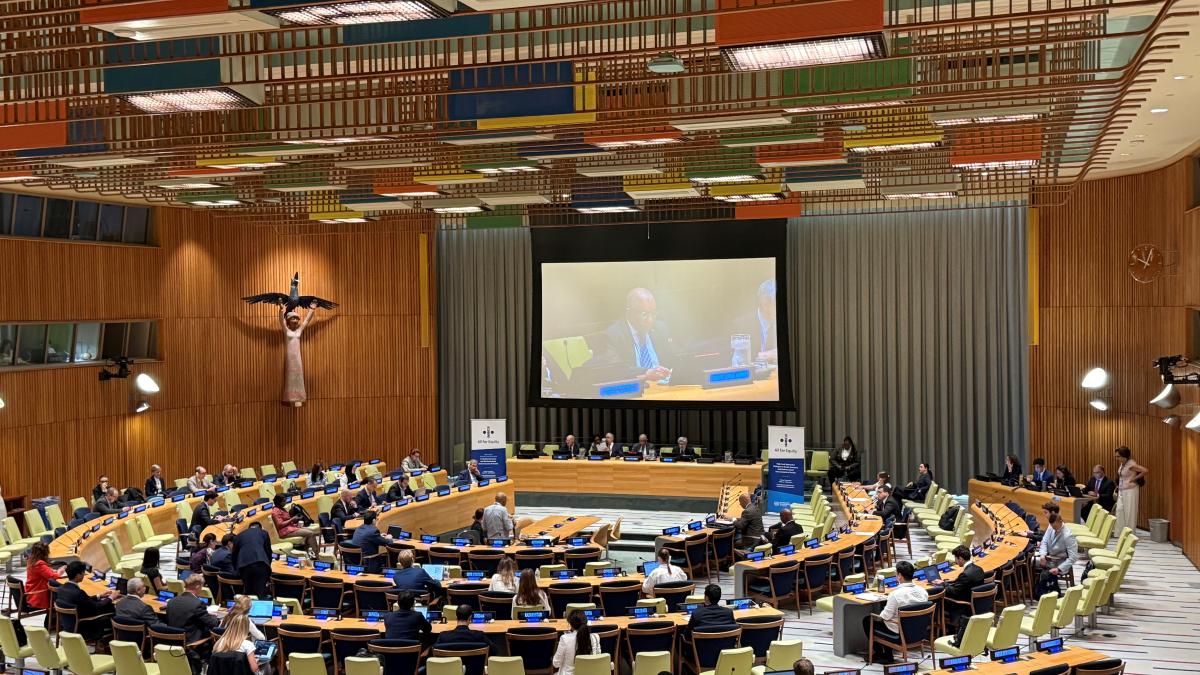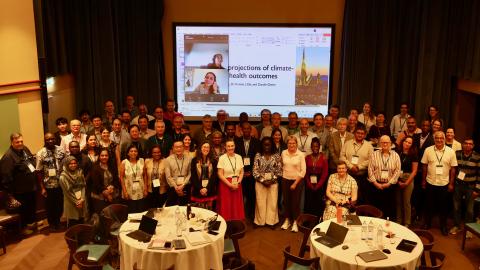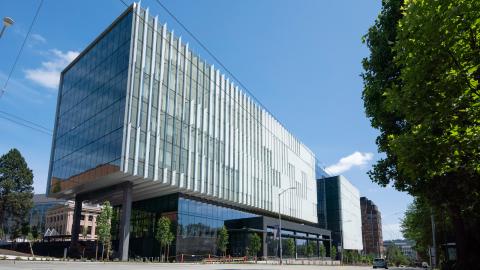
On July 11, 2025, CHanGE’s founding director, Kristie Ebi, PhD, MPH joined world leaders, policymakers, and public health professionals at the United Nations Headquarters in New York for a high-level interactive dialogue on the social, economic and environmental determinants of health. Hosted by the president of the UN General Assembly with support from the World Health Organization, this day-long event focused on the root causes of health disparities and explored effective interventions. The overall goal was to promote structural change, strengthen political commitment, and foster multi-sectoral coordination to achieve a healthier, more equitable future.
Bringing the environment to the table
Ebi was among a small group of invited panelists who were each given just five minutes to share key insights before taking questions from UN member states. Her remarks focused on environmental determinants of health including air pollution, biodiversity loss, access to safe water and excess nutrients from fertilizer use.
“Improving health and well-being and promoting health system resilience in the context of global environmental change require achieving all sustainable development goals including urgent investments in policies and programs to manage the growing unavoidable risks, and aid in a safe and just societal transition,” said Ebi in her statement.
She drew from her work with the Earth Commission, an international team of research scientists advancing research and policies for a future that is safe for the planet and just for all inhabitants. This group recently published a study quantifying safe and just earth system boundaries. The report defines earth system boundaries – limits we must not surpass to maintain a healthy planet with clean air, healthy ecosystems, and safe water. These boundaries combine science about what keeps the planet safe with justice considerations about protecting people.
Shared priorities across nations
The dialogue followed WHO’s World report on social determinants of health equity, released just two months prior. This was the first global report released on this topic since 2008. Its 14 recommendations for action call for a coordinated, global effort to address inequities that are shaping health outcomes.
Ebi notes the strong engagement from countries during the opening segment of the dialogue. “Many delegates made powerful statements about how important it was for their country to focus on safe and just transitions and to understand the drivers of adverse health outcomes to strengthen their health systems,” she says.
India’s representative spoke about the country’s unwavering commitment to advancing health equity, and discussed strides to increase access to clean water, improve nutrition in children, and reduce healthcare costs. A representative from Sudan emphasized the environmental damage taking place due to conflict, fires, and explosions and asked for international collaboration to improve clean water and universal healthcare for Sudanese people. Uruguay’s representative pledged the country's commitment to include women in decision-making processes as well as their leadership in implementing programs to reduce chronic diseases such as cancer, cardiovascular diseases, and diabetes.
Working towards a safe and just future
For Ebi, the event underscored the growing global recognition that environmental changes are inseparable from conversations about health equity. International bodies like the UN are working to connect scientific recommendations with real-world commitments to encourage countries to include safe and just targets in their development plans.
“If we want a safe and just future, we need to act now – across all sectors and at every level,” says Ebi.
Watch the full UW TV stream of the interactive dialogue.
- Faculty Spotlight


